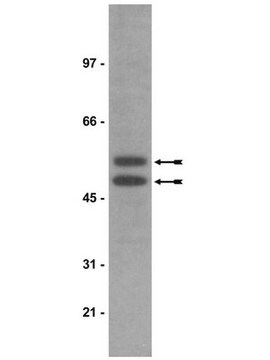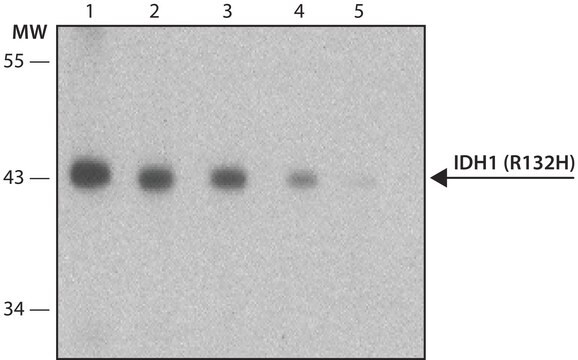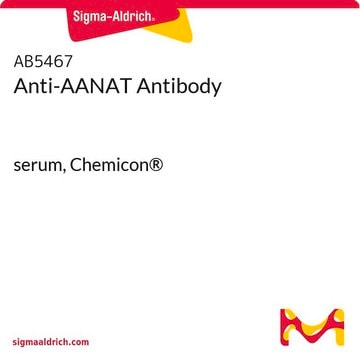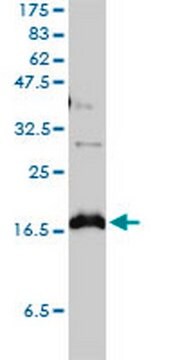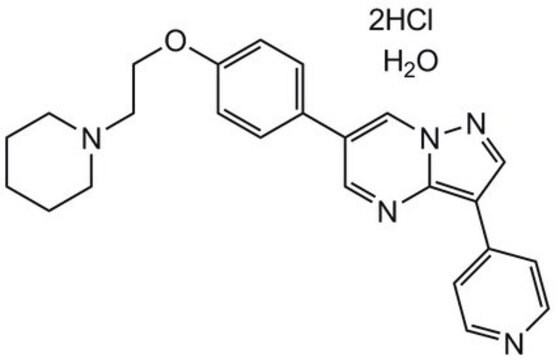05-412
Anti-GSK3 Antibody, clone 4G-1E
clone 4G-1E, Upstate®, from mouse
Synonym(s):
GSK-3 alpha, glycogen synthase kinase 3 alpha
About This Item
Recommended Products
biological source
mouse
Quality Level
antibody form
purified immunoglobulin
antibody product type
primary antibodies
clone
4G-1E, monoclonal
species reactivity
mouse, Dictyostelium sp., Schizosaccharomyces pombe, rat, vertebrates, human
manufacturer/tradename
Upstate®
technique(s)
immunocytochemistry: suitable
western blot: suitable
isotype
IgG1
suitability
not suitable for immunoprecipitation
NCBI accession no.
UniProt accession no.
shipped in
dry ice
target post-translational modification
unmodified
Gene Information
human ... GSK3A(2931)
mouse ... Gsk3A(606496)
rat ... Gsk3A(50686)
Related Categories
General description
Specificity
Immunogen
Application
Not recommended.
Immunocytochemistry:
10 µg/mL of a previous lot showed positive immunostaining for GSK3 in L6 cells fixed with acetone.
Signaling
PI3K, Akt, & mTOR Signaling
Quality
Western Blot Analysis:
0.5-2 µg/mL of this lot detected GSK3 in RIPA lysates from human Jurkat cells; previously GSK3 was detected in RIPA lysates from human A431, rat L6 and PC12, and mouse 3T3 cells.
Target description
Physical form
Storage and Stability
Handling Recommendations: Upon receipt, and prior to removing the cap, centrifuge the vial and gently mix the solution. Aliquot into microcentrifuge tubes and store at -20°C. Avoid repeated freeze/thaw cycles, which may damage IgG and affect product performance.
Analysis Note
Positive Antigen Control: Catalog #12-303, Jurkat cell lysate.
Other Notes
Legal Information
Disclaimer
Not finding the right product?
Try our Product Selector Tool.
Storage Class Code
12 - Non Combustible Liquids
WGK
WGK 1
Flash Point(F)
Not applicable
Flash Point(C)
Not applicable
Certificates of Analysis (COA)
Search for Certificates of Analysis (COA) by entering the products Lot/Batch Number. Lot and Batch Numbers can be found on a product’s label following the words ‘Lot’ or ‘Batch’.
Already Own This Product?
Find documentation for the products that you have recently purchased in the Document Library.
Our team of scientists has experience in all areas of research including Life Science, Material Science, Chemical Synthesis, Chromatography, Analytical and many others.
Contact Technical Service